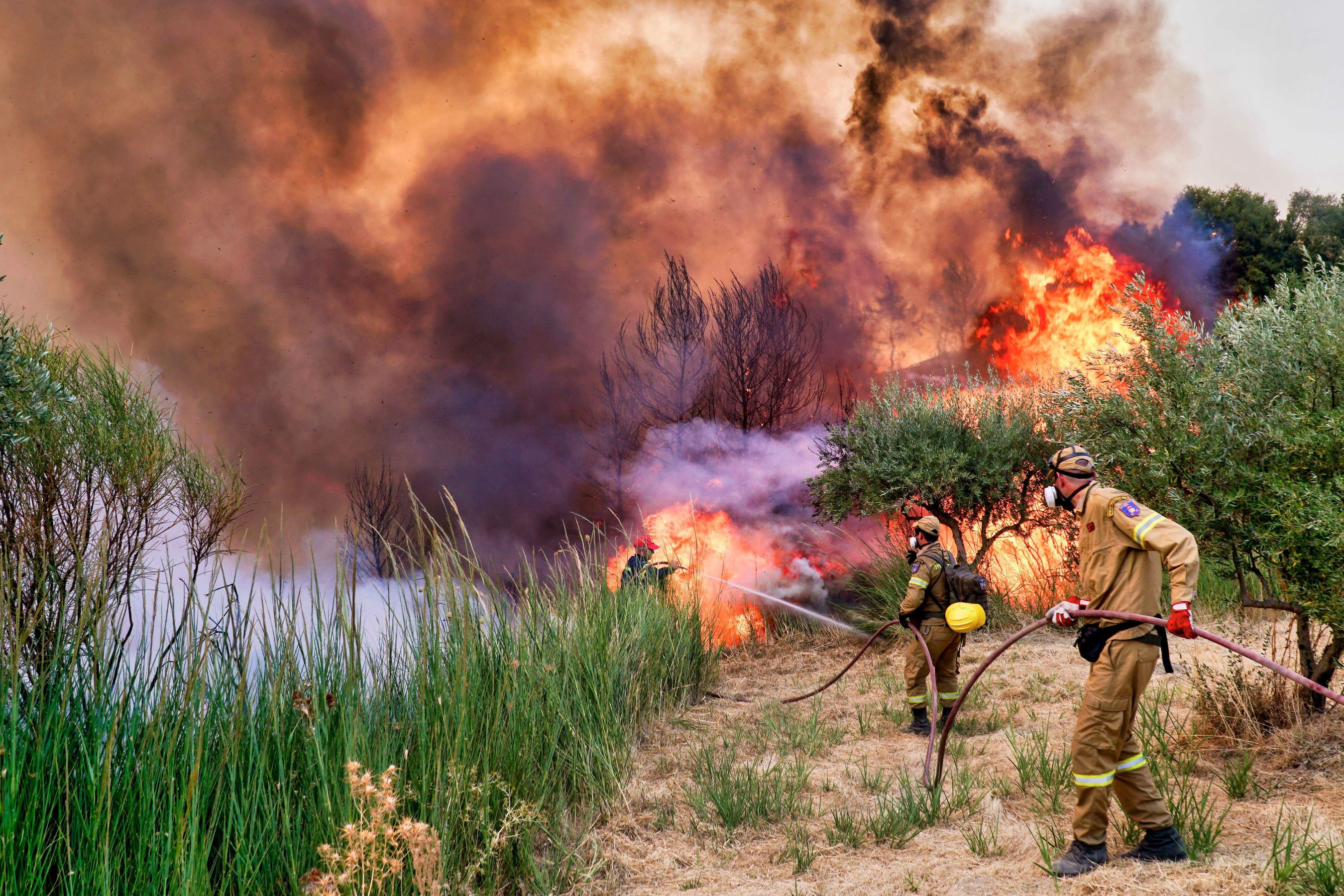Met Office
|
|
Wildfire threatens global climate goals by weakening carbon sinks
New research reveals that wildfires are accelerating carbon loss from ecosystems, reducing the amount of emissions society can release, while still avoiding the worst impacts of climate change.
Wildfires are accelerating carbon loss from ecosystems, reducing the planet’s ability to store carbon and complicating efforts to meet global climate targets. According to new research led by the UK Met Office, fire is already affecting land carbon sinks, making it harder to slow global warming, even before we reach 1.5°C of warming.
“At 1.3°C of warming, we're already seeing fire-related impacts on carbon storage in ecosystems," said lead author Dr Chantelle Burton. “This makes the 1.5°C target of the Paris Agreement even more critical to prevent escalating impacts.”
The study highlights how fire is not just a future challenge but a current issue, as fires are already reducing the capacity of forests and other ecosystems to sequester carbon.
Narrowing the window to keep global warming in check
“Fires are reducing the ability of forests and other ecosystems to store carbon, narrowing our window to keep global warming in check,” Dr Burton added.
Findings underscore a stark reality
Co-author Dr. Douglas Kelley, from the UK Centre for Ecology & Hydrology, highlighted the immediate concern. “Our findings underscore a stark reality: fires are not just an issue for the future; they're affecting our planet now. As temperatures rise, fires are increasingly pushing natural carbon sinks towards sources of carbon emissions.”
The research used advanced global land and climate models to explore how fires affect ecosystems' ability to store carbon. These models simulate how plants grow, compete for resources, and respond to environmental changes, while factoring in the nutrients they need and how climate change drives fire behaviour. By examining both historical data and future scenarios, the team identified critical temperature thresholds where fires cause significant shifts in tree cover and carbon storage. Alarmingly, the latest temperature at which, globally, these impacts become pronounced is 1.34°C—close to current levels of warming.
“Impacts on carbon stores could happen sooner when we account for missing fire processes, and these additional feedbacks are already weakening land carbon sinks,” explained Dr Burton.
While the study underscores the challenges fire poses, it also offers hope.
Limiting the worst impacts by reducing emissions
“While some regions may be closer to a threshold than we previously thought, our results suggest that some parts of the world won't see large-scale losses to fire until 2.0°C of warming; so we can still limit the worst impacts by reducing emissions,” said Dr Burton.
Co-author Dr Camilla Mathison stressed the need to incorporate fire impacts into climate planning. “To meet the Paris Agreement’s goals, we must consider the role of fires. Updating our strategies to reflect these impacts will help us better assess and manage the risks of global warming.”
Co-author Dr Liana Anderson added that fire management is critical to addressing the problem. She said: “The climate and landscape have already changed in a way that the entire system is more flammable. Fire management policies must tackle not only the technical aspects, but also include the societal responsibilities of criminal fires and acknowledge financially those promoting and building local capacity to adapt, mitigate, and respond to fires.”
Meanwhile, Co-author Prof Chris Jones stressed the need for global leaders to take decisive action “In the run up to the next COP negotiations on climate change, we hope our results offer compelling evidence for our leaders to take decisive action to tackle the climate crisis.”
Unavoidable changes
Prof Richard Betts added: “The failure of the international community to cut global emissions means that we must now live with unavoidable changes. Many people around the world are now going to have to live with more fire as part of their everyday lives, and ecosystems will inevitably change.”
The study concludes that while fire is already reshaping ecosystems, rapid emission cuts and improved fire management could still prevent the worst outcomes. As Dr Burton noted: “By acknowledging fire’s role in carbon loss, and strengthening both mitigation and adaptation strategies, we can still make progress toward our climate goals.”

Original article link: https://www.metoffice.gov.uk/about-us/news-and-media/media-centre/weather-and-climate-news/2024/wildfire-threatens-global-climate-goals-by-weakening-carbon-sinks


